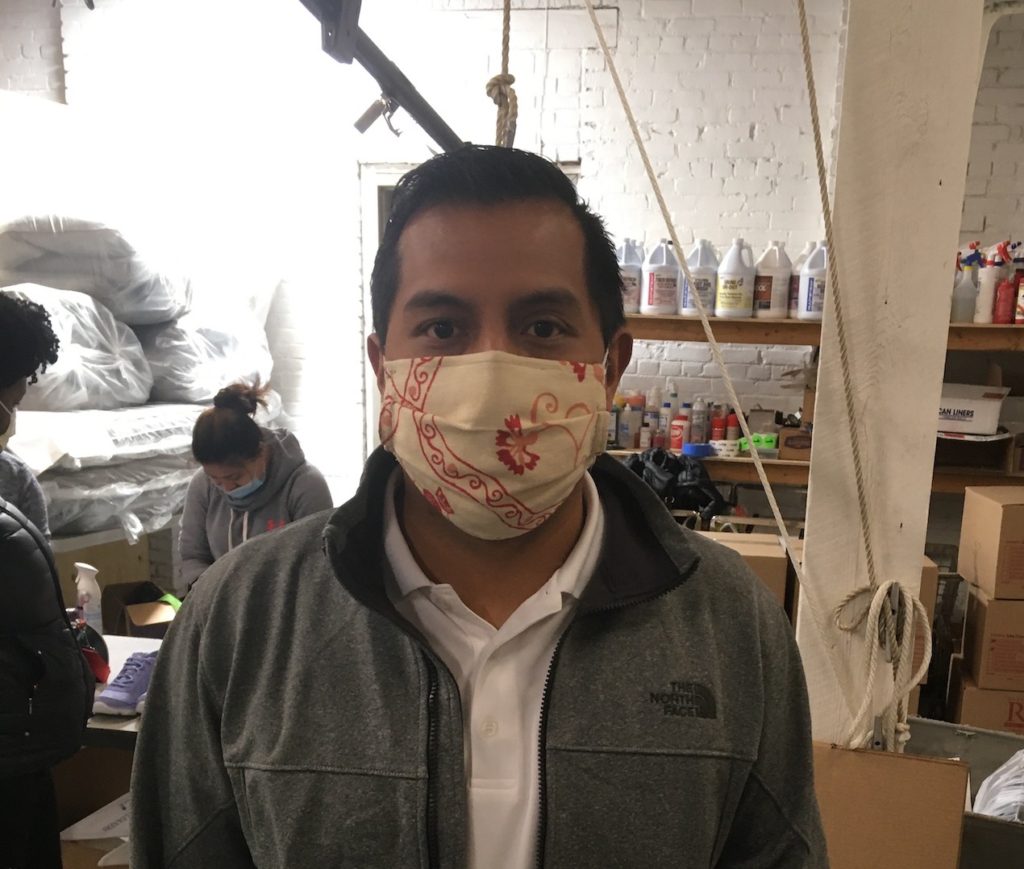As I type this, we are in the middle of experiencing the worst pandemic in the last 100 years. People are getting sick, some dying, many afraid among a variety of other feelings like loneliness and other new unfamiliar feelings that are partially a result of the constant bombardment of the news media as well as this “new normal” of “social distancing” and disinfection we have been experiencing for about a month now.

As one of the many business owners out there, I am trying to be practical and looking at this as another business problem to solve. One that doesn’t look solvable with revenue down 80% and a future, as a result of people finding new ways to do business, that looks very different than when we first found out about this virus.
But this is a blog about service not pandemics or business problems. So I thought it would be of value to write about what it means to serve with that as a backdrop.
I recently read a quote that said, “the best way to reduce anxiety in times like this is to start thinking about what you can do for others.” Doing for others can reduce anxiety?
This supports an article in a recent WSJ article that prompted me to finish this blog.
The article starts with the sentence, “when you’re down, help others.”
According to a study in the Association for Psychological Science, “prosocial behavior” helped reduce the stress and anxiety one experiences in difficult times. I had to look up prosocial behavior which means doing charitable acts with no tangible benefits from doing so. Simply put from the author of the study, “helping others helps ourselves.”
Since the start of people in quarantine and not using our service, I’ve been approached with several business opportunities to capitalize on the pandemic one way or another with the idea of making up for lost revenue. Making face masks or other protective hospital attire were a couple of examples. Although changing times provide new opportunities, none of these felt right. Times like these make us ask ourselves “how can we help,” not “how can we profit?”
And at its core, isn’t that what service is all about? How can we help others at the highest level of quality and service. If we are not set up to make hospital gowns or face masks, then we shouldn’t try and do it just for money. However, if we are set up to provide laundry service to those who need it, that is in our wheelhouse and something we should look to provide with the type of service we believe in.
Over the past couple of weeks, I’ve seen examples of appreciation and kindness with our customers that I normally don’t see when it’s business as usual. I see handwritten notes in with the clothes that show appreciation for us delivering during these times and hoping we stay safe. I think we should pause at this and think about the fact that our customers do appreciate our service. Like us, they are grateful for all the things they have in life during these times. Even having our service is causing them to reflect, and maybe, reducing their anxiety a little.
I’ve also seen tremendous examples of service with our Fab Service team. All of you on the front line at the stores or on the routes are part of the “essential workers” that are allowed to go out while others are in lock down. In an effort to keep you and the whole team safe, Ernst has taken the initiative to make masks to protect us all from this invisible enemy. That is Fab Service! And that is “prosocial behavior” at its core. No profit. Just doing acts of kindness without looking for anything in return.